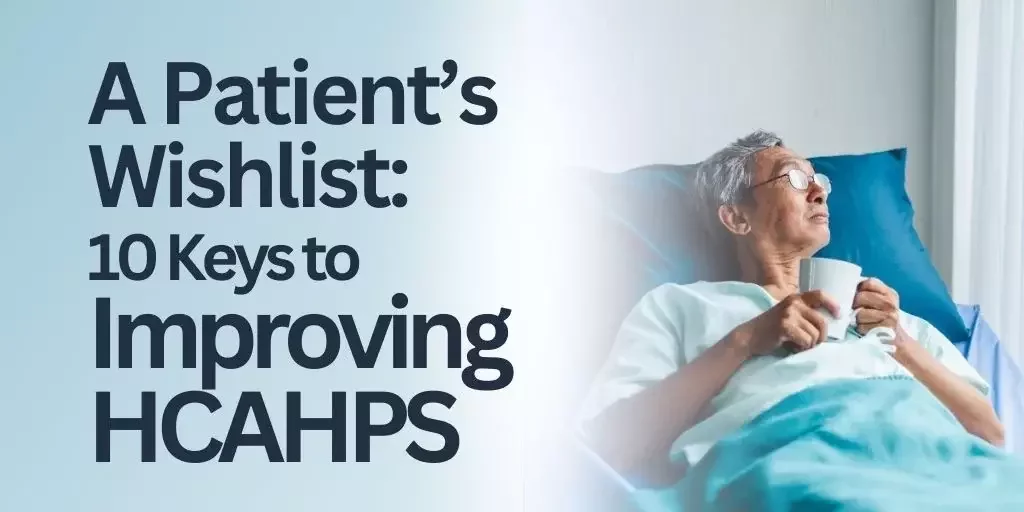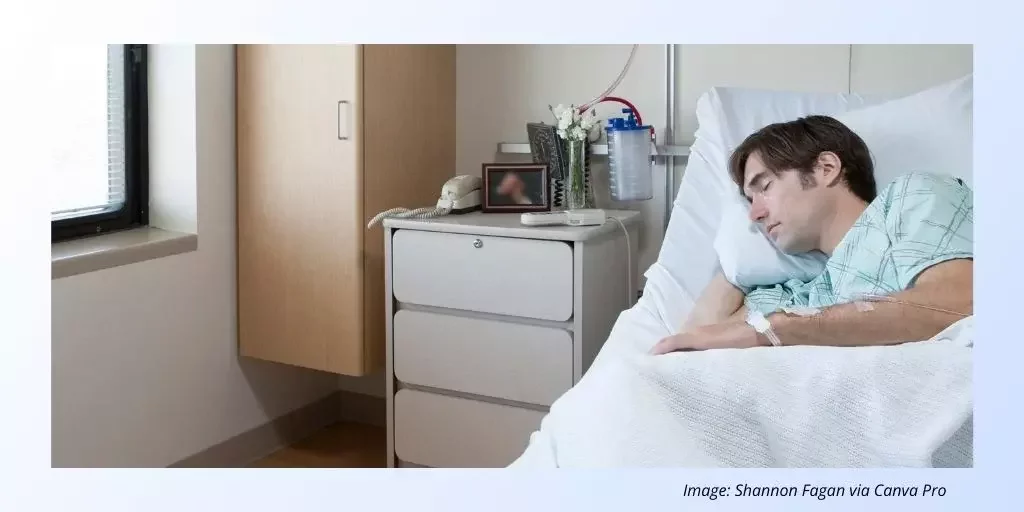
As medical professionals, you work tirelessly to provide your patients with the care they deserve, but there are a few very specific things patients wish for to make their healthcare journey smoother and more comfortable.
In this blog post, we delve into the heart of the patient experience and highlight the ten things that matter most to your patients.
Headlines:
1. The backstory of the patient’s wishlist findings
2. “The 10 things I wish I received as a patient”
3. Key Takeaways: Valued patients, small details, and actionable feedback
4. Take Action Now: What you can do today to improve your patient’s experience

Johns Hopkins' Dr. Peter Pronovost and Jane Hill were posed this question:
"What are the most common pieces of feedback we hear when patients send us letters or complete their surveys?"
Pronovost and Hill collaborated to find the answers. After compiling a list of a Patient's Top Ten List, U.S. News reported on their findings in October 2015.
Lisa Allen, Chief Patient Experience Officer for Johns Hopkins, presented the list written in the patient's voice, hoping to drive home the importance of the patient's impressions.
Allen says:
"They are asking us to treat them as a person, with caring and empathy."
Written in the patient's voice:
The 10 Things I Wish I Received as a Patient
Adapted from this U.S. News article.
1. Let me sleep.
Please allow me to sleep throughout the night, without being interrupted to take my vitals, unless critical. Sleep is an essential part of my recovery.
2. Keep the noise down.
The noise levels at the nurse’s station can be loud and distracting, especially at night. Additionally, the electronics in my room make it hard to sleep with the noise and lights–please turn everything off before I go to sleep.
3. Don't lose my belongings.
My belongings are part of what makes me feel more at ease, and if they are misplaced it not only affects my comfort-level, it also signals that my personal experience doesn’t matter.
4. Knock first.
Just like at home, I expect you to knock on my door before entering, and if I don’t know you, please introduce yourself. Respecting my privacy is an easy way of allowing me my dignity.
5. Keep my white board current.
If the information on my white board is even a couple hours out of date, it makes me feel lost and forgotten about. Seeing my daily plan helps me to reduce uncertainty and the anxiety that accompanies it.
6. Keep me updated.
If anything changes with my condition, please keep me informed. Regular communication is better than feeling like I’m being kept in the dark.
7. Keep my room clean.
Having a clean and tidy space allows me the opportunity to rest and recover in peace knowing that my safety is being taken care of. If you come to clean my room, introduce yourself to avoid making things feel awkward or uncomfortable.
8. Listen to me.
My experience matters, please hear me when I voice concern or ask questions. Use plain language, and make sure I understand my plan of care.
9. Orient me to my room.
Please make me feel comfortable upon being admitted. I’m new here and don’t know where things are located, how to work the television, or how to order food.
10. Please be professional.
Especially when you’re not in my room, I expect to observe professionalism when you are in the hallway or outside on your break. How I perceive you is how I perceive the overall reputation of the hospital and the care I am receiving.
As we can see from this list, it is the small details that can greatly influence the patient’s experience. The good news is that most of these things are easily attainable. It is also of note that it is not just the nursing staff that is impacted by these requests, it is all staff that impact the patient’s experience.

Key Takeaways:
- Details Actually Matter: This list highlights that small details can significantly impact a patient's experience. Hardwiring these simple requests will contribute to better care outcomes, and improved patient satisfaction with rising HCAHPS scores.
- Empathy: Patients value being treated as individuals with care and empathy. This is not new news. Acknowledging their needs and preferences is crucial to enhancing their experience.
- Actionable Feedback: Getting this wishlist hardwired and sustained in your hospital requires a thoughtful systematic approach.
Take Action Now: What You Can Do Today to Improve Your Patient’s Experience
At Readiness Rounds, we believe in proactive care–and that’s our take on patient satisfaction and experience.
Instead of waiting to hear how your hospital performed after care, we help using a systematic approach that identifies and solves patients’ issues while they are still in your care.
We would be honored to be a partner in your hospital’s patient satisfaction and experience improvement journey.
